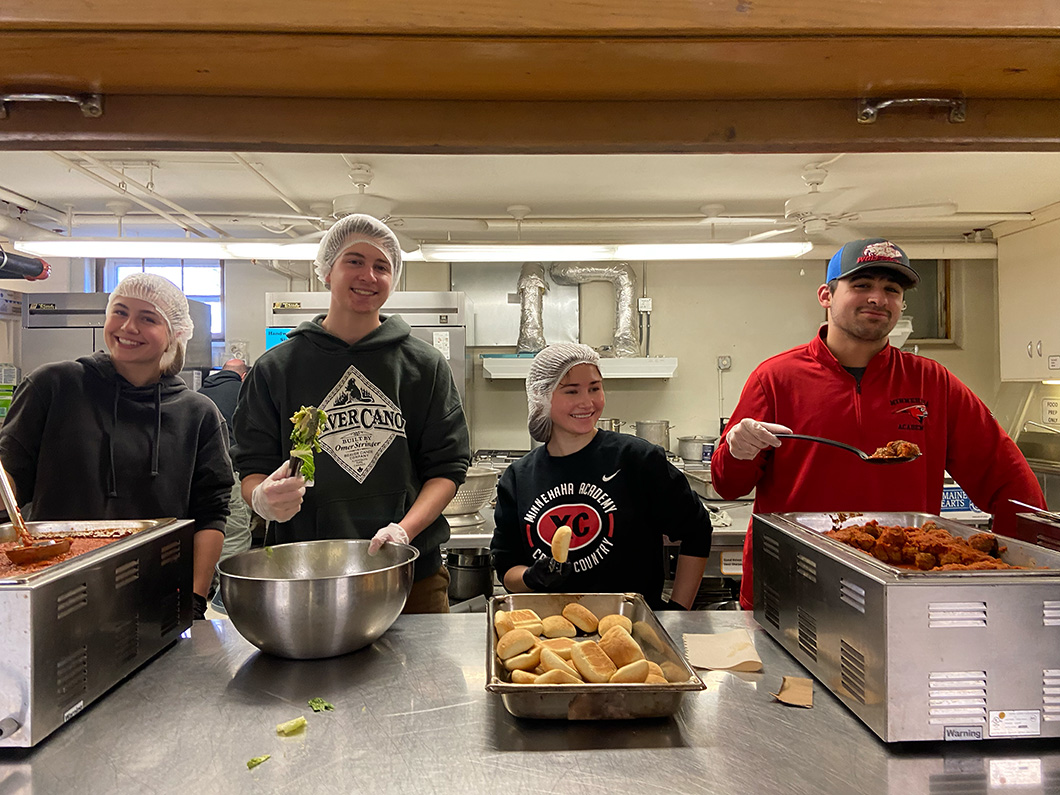Why many neighbors struggle to meet basic needs, and how you can help
As humans, we constantly rely on food to survive, and it should be a right to have access to it. However, that is far from the truth of our society today. In 2021, 483,000 people in Minnesota experienced “food insecurity.” That’s one in every 6 people.
”Food insecurity is when people just don’t have enough access to food,” said Jessa Anderson, the Cultural Immersion & CFE (Core Formation Experiences) director. “Whether it be just basic food opportunities, or potentially a greater definition of that would be that people don’t usually have access to healthy food or the foods that they need.”
When people can’t get enough food to sustain a healthy lifestyle, it harms their day-to-day activity and prevents them from reaching their full potential in life, especially in children.
Anderson believes that food insecurity mainly stems from financial injustices that put victims in a tricky spot.
“Income disparity or access to well-paying jobs or access to being able to have transportation having an income that provides for your family,” she said, adding that “there are things that impact families and people, because some of the systems we have placed in our country make it harder for some people to have access to basic needs and things that they should have.”
However, many are helping take a stand against hunger. On March 17, 2023, Governor Tim Walz signed the Free School Meals bill into law, officially starting at the beginning of this school year. This allowed participating schools to provide their students breakfast and lunch at no cost. Through this, Minnesota became only the fourth state in the US to establish a free school meal bill.
Organizations are also helping fight against these injustices. Michael Binder, co-founder of Every Meal (formerly The Sheridan Story), originally had an idea of helping out a nearby public school where kids didn’t have enough food to go over the weekend.
“We didn’t start out as a nonprofit organization,” Binder said. “We were just trying to address the need in a school. Over time, we learned how to do that in one school, and then we figured out how to do it in more than one school, and that eventually became a nonprofit organization that still feeds a lot of kids every week.”
Today, Every Meal serves over 10,000 children at over 400 locations, and they continue to grow.
At Minnehaha Academy, students can participate in some of these organizations through local CFE options and by volunteering on their own (see box with QR codes).
“It just feels good to help out others in need by preparing meals; it was really fun,” said Kingston Brown, a sophomore who has participated in food-related local CFE projects in 2023 and 2024. “It’s also changed my social perspective, and I’ve started talking to people more than I did before.”
Just like these people, you can help, too. Organizations like Every Meal and more are often open to the public and offer many ways for you to join the fight against hunger, by volunteering or donating to the organization. “I don’t think that change happens by one person doing one thing,” said Anderson. “I think it takes a lot of people doing a lot of things to see change happen. It’s kind of like a domino effect, like you see one person or a group of people and you want to get on board and do what they’re doing.”
If you’d like to help in the fight against hunger, check out some of these local organizations that Minnehaha is working with:

